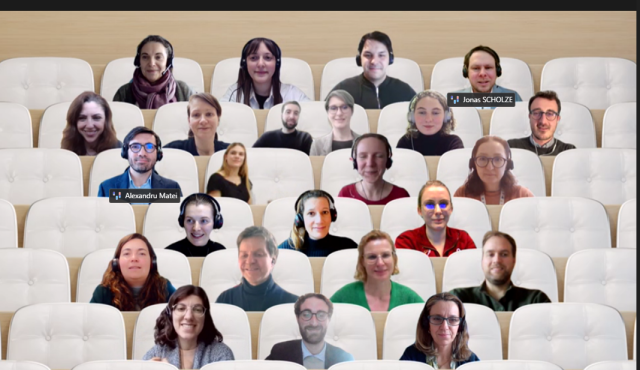
About the Partnership
The Union of Equality, launched in 2021 by the European Commission, introduced an important initiative that focuses on mainstreaming equality at the EU and Member State level. Today, as demonstrated in the Ex-Ante Assessment report, there is still a lot of work to be done at city level and especially the urban dimensions that the Urban Agenda for the EU is dedicated to. This is where the UAEU Partnership on ‘Cities of Equality’ can bring added value.
The primary focus of the new Thematic Partnership is addressing specific issues related to equality within cities. Cities that successfully and proactively foster environments of equality are those that take into account the diverse needs of all individuals and social groups. They plan and provide equal opportunities for everyone, irrespective of age, disability, gender, sexual orientation (LGBTIQ), religion and belief, race and ethnic origin (including country of origin), or socio-economic status, ensuring that no one is left behind.
In order to achieve this ambition whilst creating the environments for equality, it is necessary to employ both targeted interventions that specifically benefit protected groups and holistic thinking that aims to ensure cities work for everyone. The principle of intersectionality, which acknowledges the overlapping and interconnected nature of various forms of discrimination and disadvantage, will be essential in this endeavour. By considering the unique challenges faced by different individuals and communities, the Thematic Partnership can strive for comprehensive and inclusive approaches towards achieving equality within cities.
Thematic Focus
The concept of "Cities of Equality" lacks an agreed-upon definition in the context of policy and regulation. This presents both a challenge and an opportunity for the Thematic Partnership on Cities of Equality. The idea of equality recognises that certain groups of people, now legally protected based on characteristics such as race or ethnic origin, disability, sex and sexual orientation, religion and belief, among others, have historically faced discrimination.
The notion of Equality recognises that historically certain groups of people with now legally protected characteristics such as race or ethnic origin, disability, sex and sexual orientation, religion and belief and more have experienced discrimination. In general terms notion of equality is about ensuring that every individual has an equal opportunity to make the most of their lives and talents. It is also the belief that no one should have lesser life chances because of the way they were born, where they come from, what they believe, or whether they have a disability.
The new Thematic Partnership will focus on specific issues related to equality in cities. The cities that can successfully and proactively create environments for equality are those consider the diverse needs of all individuals and social groups, plan for and provide equal opportunities for all, regardless of age, disability, gender, sexual orientation (LGBTIQ), religion and belief, race and ethnic origin (incl. country of origin), or socio-economic status – leaving no one behind. In order to achieve this ambition whilst creating the environments for equality, both targeted interventions that benefit protected groups specifically and holistic thinking aimed at ensuring cities work for all are needed.
Members
By clicking on the symbol , in the top left corner, you will be able to see the different layers of this map.
National authorities
- National Agency for Territorial Cohesion(ANCT) (FR)
- Austria Tech - Sustainable Transitions Partnership (DUT) (AT)
Regions
- Metropolitan City of Rome Capital (IT)
- Konin Agglomeration Association (PL)
Cities (Urban Authorities)
- Municipality of Varna (BG)
- Municipality of Heerenveen (NL)
- Birzai District Municipality Administration (LT)
European/ national city umbrella organisation
- Eurocities (BE)
- ICLEI European Secretariat (DE)
- Council of European Municipalities and Regions (CEMR) (BE)
Other stakeholders
- USE Efficinecy Association (IT)
European institutions
- European Commission Directorate-General for Regional and Urban Policy (DG REGIO)
- European Commission Directorate-General for Structural Reform Support (DG REFORM)
- European Commission Directorate-General for Energy (DG ENER)
- European Commission Directorate-General for Education and Culture (DG EAC)
- European Commission Secretariat-General
- European Commission Directorate-General for Justice and Consumers (DG JUST)
- European Commission DG Directorate-General for Research and Innovation (DG RTD)
- European Commission DG Employment, Social Affairs and Inclusion (DG EMPL)
- European Commission Joint Research Centre (JRC)
Library
Documents
Knowledge
View knowledge outputs on Portico
Portico is the European urban knowledge platform developed by the European Urban Initiative (EUI) in support of better urban policy and strategy design, implementation, and mainstreaming.
